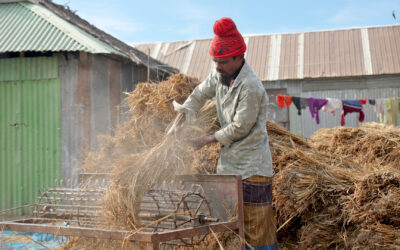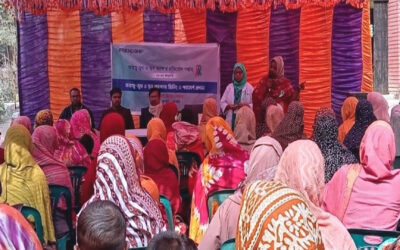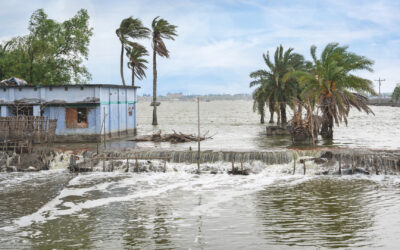The fourth edition of the Inter-School Connectivity Project, with a focus on digital connectivity, commences, connecting Friendship school students in remote river islands to peers in France, Switzerland, and Luxembourg
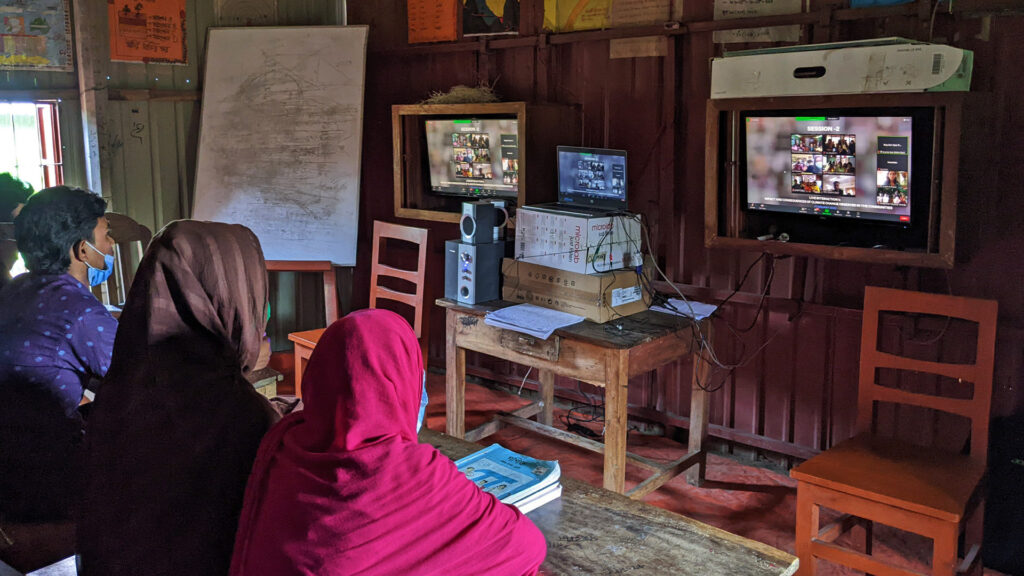
by Tahmeed Chaudhury
January 29, 2024
In the past, without physical interaction or foreign travel, there was little scope for people from one part of the world to connect with another. However, thanks to modern technology and progress in digital connectivity, cross border interactions are more convenient than ever. With an aim of maximizing the opportunities provided by digital technologies, Friendship launched the fourth edition of the Inter-School Connectivity Project (ISCP) on Wednesday, January 24, 2024.
The Inter-School Connectivity Project brings students from Friendship secondary schools in chars together with students from different countries in Asia and in Europe, enabling them to directly engage in discussions surrounding climate change and the innovative solutions to combat its impacts. The programme aims to facilitate cross-cultural dialogue and foster connections among students from diverse cultural and environmental backgrounds, helping them develop fresh perspectives and empowering them to emerge as advocates for climate action.
Piloting the initiative in 2021 between Friendship school students and French students, the project expanded to include 1400 students from five countries: Bangladesh, Luxembourg, France, Switzerland and Cambodia, in the third edition. This year will also see around 1400 students participate from 31 schools from Bangladesh, Luxembourg, Switzerland, and France, with 12 Friendship secondary schools involved.
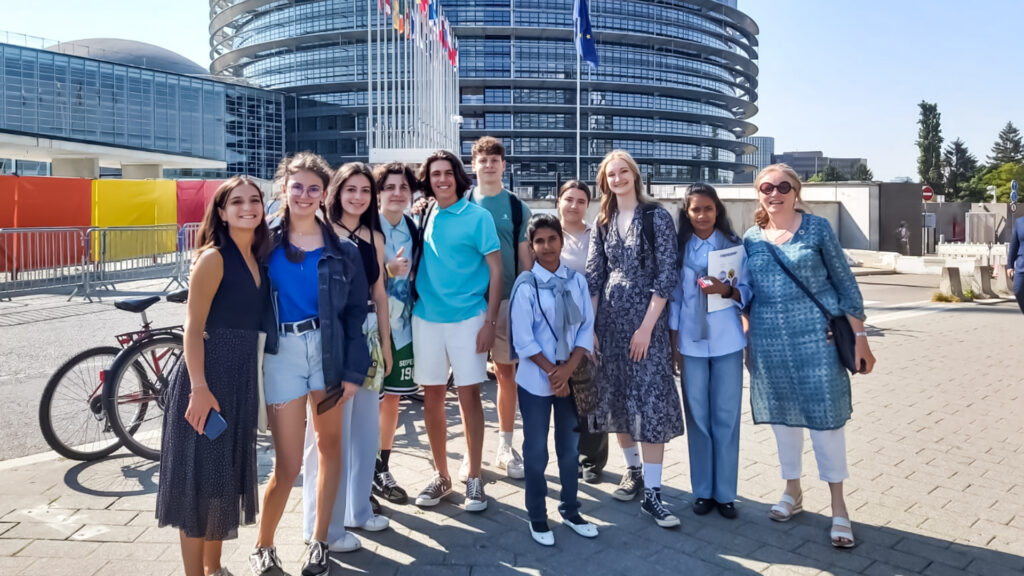
In her speech at the launching ceremony, Friendship founder Runa Khan said the future of the planet depends on the children of this generation. “A cross-boundary relationship is very important to tackle the challenges that our generation is leaving for them,” she said. “People who are not used to facing disasters are now facing incredible difficulties brought about by the climate crisis. They can learn from the people in the south to tackle these emergencies. The ISCP allows children from these countries to build empathy for each other and share their experiences.”
Two students from Bangladesh who took part in previous ISCP editions travelled to Strasbourg, France to participate in the European Youth Event held in June 2023 and two others attended the COP28 in Dubai, along with their peers from France and Luxembourg. Ronzina Akhter, 14, a Friendship secondary school student from a remote char called Batikamari, participated in COP. She said, “Digital connectivity helped me acquire diversified knowledge on technology, climate, and many other things. Sharing ideas, making videos, exchanging stories, etc. around the environment and climate inspired me to become a climate activist.”
Marta Crisostomo Ribeiro, a former ISCP student from Luxembourg, says talking directly to Bangladeshi students living in disaster prone areas has opened her eyes to a different reality. “We talked, we asked questions and shared our stories. My favourite part was talking to them live because it’s different from watching a video or reading a story; it allows you to feel emotions which you otherwise don’t.”
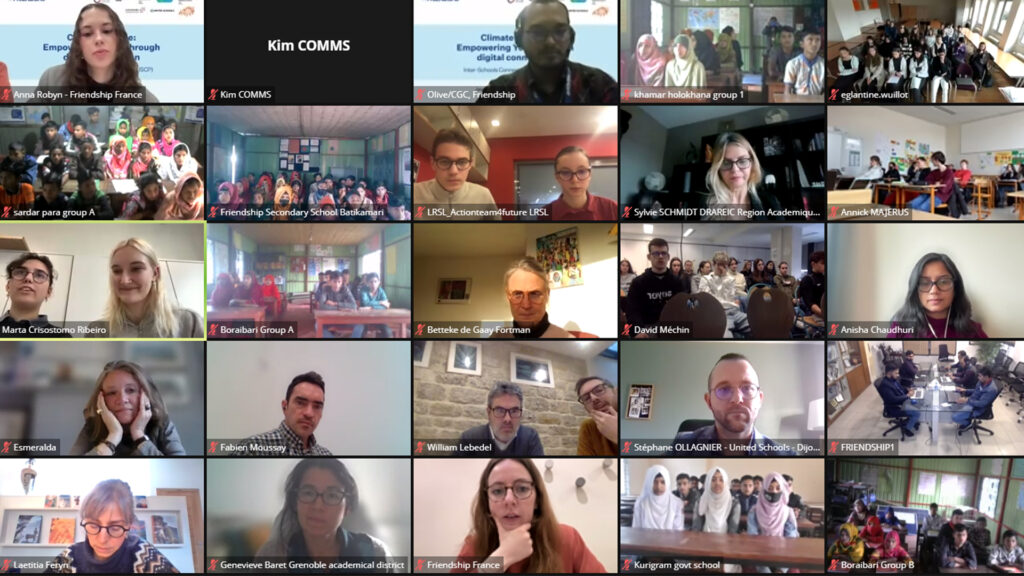
Dr. Mahbuba Nasreen, Pro-Vice Chancellor of Bangladesh Open University, and Mr. Nicolas Marques, Deputy Director of International Relations at the Delegation for European and International Relations and Cooperation, Ministry of National Education and Youth, France, attended as the guests of honour. Dr. Nasreen feels that the youth are making good use of digital technologies to make an impact. “The youth are more adept at and aware of technologies than their older generations and they are maximising that ability to take positive initiatives, especially in the case of raising awareness against climate change.”
Mr. Marques says his Ministry considers the ISCP a programme of great value. “What we are looking at in this programme, is the way it helps pupils to learn how to build natural and relevant knowledge, which is a critical challenge for all educators today,” he remarks.
This year, the ISCP programme will involve five sessions, where students from different countries and backgrounds will get introduced to each other, interact, learn about each other’s culture and traditions, and have conversations and arguments around a wide range of topics, especially climate change.
Anisha Chaudhuri, Grants Officer at Malala Fund, Olivier Bréchard of the Learning Planet Institute, William Lebedel, Chair of Friendship France, and Marc Elvinger, Co-chair of Friendship International and Chair, Friendship Luxembourg, among others, also attended the launching ceremony.
The event was part of the Learning Planet Festival, organised by the Learning Planet Institute, which brings together global educational actors such as UNESCO to address present and future challenges in education.

